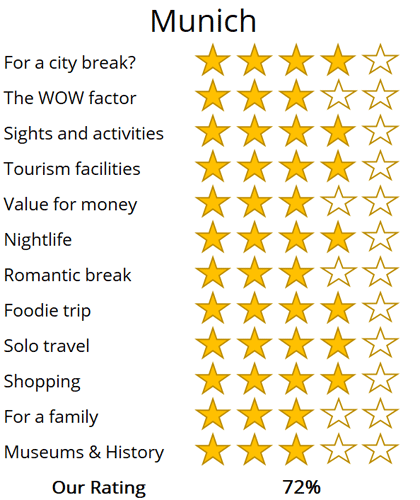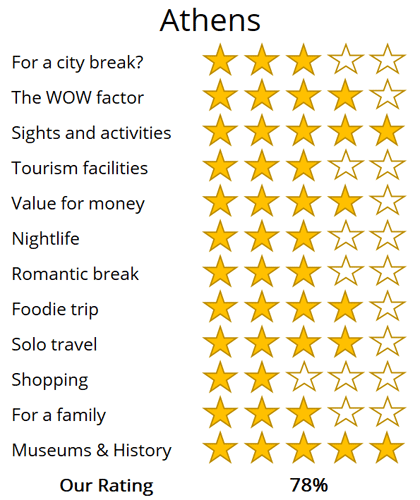WhereToGoForMyHoliday.com
The best destination comparison site!
WhereToGoForMyHoliday.com
The best destination comparison site!
Munich or Athens, which is better for your holiday in 2024?
Munich and Athens both offer unique and enticing experiences, but which one should you choose for your city break or holiday?
We recognise the difficulty in making this decision. While there is abundant information available on both destinations, clear guidance on which city better aligns with your travel preferences is often hard to find.
This article aims to provide an impartial comparison of Athens and Munich, and hopefully help you to choose the best city to visit.
The article is structured into several sections, each of which can be directly accessed through the following links:
• Introduction to the cities
• Scores and ratings
• Which one should I, friends, or family visit?
• When to visit and weather
• Who is the city suited for?
• The perfect 48hours (with map)
• Tourism details (where to stay? airport details?)
Introduction to Munich and Athens
Beer-mad and shrouded by the mountains, Munich is the boisterous capital of Bavaria. It's in the deep southern reaches of the country, where lederhosen are the threads of choice and white sausage is served at breakfast. Proudly unique, romantic, and steeped in art and culture, you won't find anywhere else like this in Germany.
Of course, it's the legendary Oktoberfest that puts Munich on the map. One of the world's biggest festivals, it draws millions to the city in late September (yes, Oktoberfest is confusingly held in September) to glug huge beers and eat endless wurst.
Trips at any other time of the year are sure to be a little more refined. They can involve long walks under Baroque churches, picnics in the English Garden park, and even daytrips to the stunning Bavarian Alps.

Munich is a vibrant city, ideal for a short trip
Athens, a city where antiquity meets modernity, invites travellers to embark on a journey through time. The Greek capital, steeped in history, proudly displays its ancient treasures while embracing the vibrancy of contemporary life.
The Acropolis stands as a monumental testament to Athens' glorious past, offering awe-inspiring views and a palpable connection to the city’s ancestors. Down below, lively neighbourhoods and trendy cafes showcase the modern Athenian spirit.
Whether indulging in delectable Mediterranean cuisine, exploring historic ruins, or wandering through charming streets, visitors are sure to be captivated. Athens is not just a destination; it’s an invitation to adventure, a place where the past and present dance together in harmonious splendour.

The Acropolis stands high above Athens
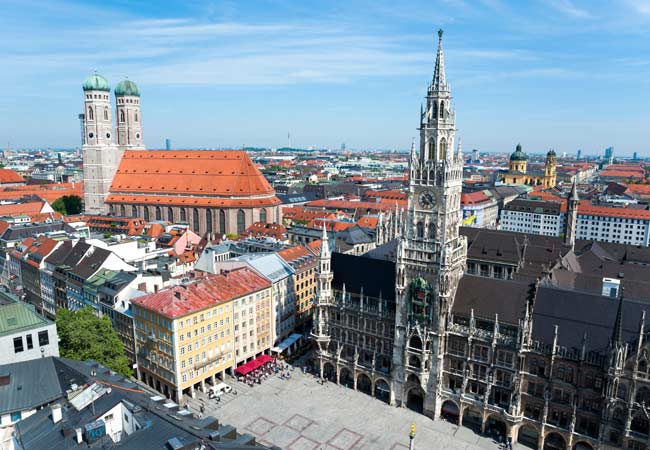
The Marienplatz and the historic centre of Munich, with the Frauenkirche Cathedral, and Neues Rathaus
High-level summary for Munich and Athens
Summary
Where would I journey for a personal escape?
Munich
Where would I send my parents for a memorable visit?
Munich
Where's the ideal destination for my adventurous 19-year-old cousin?
Athens
Where should my food-obsessed friend indulge their culinary passions?
Munich
Note: The above comparisons are weather-independent and are based on travel during the most opportune times of the year. Details about the ideal travel seasons are elaborated upon later in this article.
In the sections that follow, you'll find a comprehensive comparison between these two fascinating cities. This includes recommendations on the duration of stay, the best times to visit, and tailored 48-hour itineraries for each city.
The final segment delves into practicalities for your travels, such as the best airport to fly into, the optimal districts for your accommodation, and insider tips, for when you come to explore the city.
We hope that you find all of this information useful, in planning your next exciting trip!
Destination details
How long to spend each city?
Athens can be sampledin a few days, but it can also warrant trips of a few weeks or more. It all really depends on what you want out of your visit. If it's a whirlwind tour of the famous 5th-century history sights (the Acropolis, the Parthenon, the Agora), some Greek mezze, and a good night out that takes your fancy, then a weekend could be enough.
If you want to feel like a real local, sip gritty Greek coffees in corner bars in alt neighborhoods, and even escape to the islands to top up the tan, you'll need to plan longer.
Take a couple of days minimum to get a feel for the alternative vibes of Munich. You'll need at least a morning or two to check off the grand churches and plazas of the downtown. Afternoons are often lost to a haze of currywurst and spätzle. The evenings will disappear to clinking tankards and too much Bavarian beer.
If you're planning on joining the Oktoberfest party, then the normal amount of time to spend in the Munich event is two days. Some people will stick around longer but remember that accommodation can cost a bomb during festival dates and you'll need to book well in advance.
The closeness of the Alps and the wide variety of off-the-beaten-path neighborhoods in Munich mean that it's also possible to stay here for much longer than just a weekend or a couple of days. You could do weeks of hiking in the spring and summer months. Alternatively, you could do a full ski holiday in nearby Garmisch-Partenkirchen (Germany's biggest resort) during the winter.

The National Archaeological Museum, houses the world’s finest collection of Greek artefacts

Excessive amounts of beer, lederhosen, singing and crazy fairground rides… it can only be Oktoberfest
Munich is one of those cities that has something going for it no matter the time of the year. Lots of people like the height of the summer, for the regular sun and temperatures that often spike above 30 degrees in the middle of the day. That's certainly perfect for wandering the town and enjoying the big lawns and paths of English Garden.
The autumn is best known for Oktoberfest. The shindig and the beer drinking begin in mid-September, lasting until the first couple of days in October. It's usually still warm for the party, but the days get shorter and jumpers will be needed as you get closer to November.
There's often snow in Munich from December onwards. This is the time of year to come if you have your sights set on the ski fields of the German Alps. The slopes of Garmisch-Partenkirchen typically open for business before Christmas, which is also when the enchanting markets start selling gingerbread and sausages on Munich's medieval squares.
Spring is also lovely. May is among the best months of all to travel. The summer crowds haven't arrived yet, the snows have melted, and thermometers can read a pleasant 20 degrees during the day.
Athens is most popular in the summer months, but we'd say it's not the best time of year to come. Temperatures in Greece can be scorching between June and August, with daily highs peaking around the 40 Celsius mark!
Much better are the shoulder seasons of spring and autumn. These see warm days and cool evenings of between 16-29 degrees on average. It's still usually dry, with the occasional cloud and rainfall. However, there are also fewer people around, cheaper hotels, and smaller queues for the ancient ruins.
Winter in Athens gets surprisingly cold. Snow can even fall in the height of the season. It's the best if you really don't like dodging other tourists though, with the museums and the galleries all virtually empty. Be warned that ferries to nearby islands like Poros and Aegina rarely run between November and March.
The history lover is the traveller who will surely feel most at home in Athens. After all, this is the place of the mighty Parthenon; where the Athenian Empire once flourished. And it's got Orthodox temples and some of the most acclaimed ancient artifact museums on the globe to top the lot off. You can spend whole trips hopping between crumbling temples and learning about the hard-fought Peloponnesian War, without even scratching the surface of the amazing daytrip possibilities.
Aside from its famous historical relics, Athens also has a reputation for hedonism. Districts like anarchist Exarcheia come laced with squat bars and buzzy pubs. There's also pumping nightlife around the Plaka area, where you'll be able to dine on endless platters of saganaki cheese, hummus, and grilled lamb before heading out to dance the Zorba.
If you're planning a Greek beach holiday, then Athens is a good arrival point. You're likely to be a little disappointed if you hang around too long, though. The only sands within reach of the centre are in Vouliagmeni to the south and they certainly aren't the best in the country.
Munich is unique in that it manages to fuse together the great outdoors, rich European culture, and an enticing foodie scene. That's all thanks to its place as the historic capital of Bavaria, which brings a long tradition of cooking, beer making, castle building – the list goes on.
The upshot? There are all sorts of travellers who are catered to, no matter if you come in search of pretzel eating or high-altitude trekking.
One thing you won't find in this city is the sea. The nearest saltwater is a hefty drive over the Alps in Italy or Croatia. So, don't come if you're pining to top up the tan and swim in the Med.

The Englischer Garten (English Garden) is the spawning park in the centre of the Munich

The delightful Pláka district, is a maze of narrow streets on the northern slopes of the Acropolis
48hours in Athens
Searching for an all-round fantastic 48 hours in the Greek capital? Look no further. This culture-packed and monument-filled itinerary whizzes you through all the mainstay sights and even into some downright gritty local districts. Enjoy…
Day 1: Start as early as you can and head straight through the Plaka area up to the base of the Acropolis. The best way to reach that grand monument is via the winding roads that link up the tavernas with the great Propylaea gatehouse that dates to 437 BC. It was commissioned by Perikles in the aftermath of the Persian War and leads to the symbolic heart of ancient Athens: The Parthenon.
Getting there early means you can hopefully dodge the crowds and the heat. Take some time to wander to see the hulking columns and design – it's considered to be the finest Doric temple on the planet. The next-door Erechtheion also catches the eye. It was built after 421 BC in honour of Poseidon and Athena, famed for its Caryatid statues of female figures. A lookout point on the south-east end of the Acropolis is perfect for taking in the city views.
For lunch, go for the vibrant area of Koukaki, checking out the Theatre of Dionysus en route. It's filled with hip cafeterias and bakeries, all huddled under plane trees and bougainvillea. It's a short walk from there to the acclaimed Acropolis Museum. You can while away the whole afternoon within, uncovering the story of the legendary building and the politics it represented.
Think about ending the day with a walk through the pine trees to Filopappou Hill. That's home to the place where Socrates was imprisoned in the early 390s BC and tops out with some of the most stunning views of the Acropolis there are.

The Parthenon was dedicated to the Greek goddess Athena, who is regarded as the patron of the city
Day 2: The café culture of Monastiraki gets the day rolling – think about grabbing a traditional Greek coffee and pastry in one of the local bakehouses. A quick stroll through the blocks southwards then takes you to the Agora.
That was the epicentre of life in the ancient city state, complete with shrines and marketplaces and statues. The piece de resistance is the Temple of Hephaestus, which crowns a hillside on its northern end. Nearby, the blocks of Syntagma and Syntagma Square offer a glimpse at the modern edge of the Greek capital.
The vast plaza at the area's heart hosts the Old Royal Palace of the Greek monarchy. There are also countless places to sit with a cold lunchtime beer. Finished? Go south and you'll find the mighty Temple of Olympian Zeus. It is half ruined but still draws a gasp from most visitors on account of its monstrous Corinthian columns.
In the afternoon, catch a tram towards the National Archaeological Museum. Inside, you'll discover perhaps the richest collection of ancient artifacts there are in the world.
What's more, the district on the doorstep is Exarcheia. Be careful with your valuables in those parts, because it's rough and gritty, but the streets ooze character and have perhaps the most hedonistic bars in the country.

The Old Parliament House served as the parliament building until 1935
48hours in Munich
Sample Munich's famous food, beer, and regal inner city on this two-day itinerary that's packed with amazing palaces and parks. If you're hanging around for longer, then you should also have time to make a beeline for the Alps or explore those off-the-beaten-track neighborhoods, but that will have to wait…
Day 1: Your travels begin on the grand Odeonsplatz. A prime example of the city's 19th-century rebuilding, it hosts some of the most magnificent sights in the region. There's the huge, 130-room Munich Residenz, the onetime home of the Bavarian kings and queens. There's the Theatine Church from the 1600s, sporting its dual Baroque towers.
You only have 48 hours, but the palaces can be visited if you have extra time. Instead, move on through the heart of the city on Briennerstraße to the vast plaza of Königsplatz. This is a photo op extraordinaire, with handsome Neo-Classical monuments like the strange Propyläen. The area around that is the artistic quarter (the Kunstareal), where there are endless museums and galleries to go into if you need to warm up or escape the rain.
Next is the beautiful Frauenkirche. This is a symbol of Munich as a whole; a great church topped by bulbous domes on the central Frauenplatz. It will take around 20 minutes to walk over there, but you'll enjoy moving into the Altstadt area as you go. You should plan to spend the evening within, hopping between sights like the iconic Hofbräuhaus (the best known beer hall in the city) and the ancient Peterskirche (the oldest church in Munich).

The Schloss Nymphenburg and its beautiful grounds
Day 2: No visit to the grand royal capital of Bavaria could possibly be complete without at least a glimpse of the Schloss Nymphenburg. It's hardly central, but private tours can whisk you there and back in a single morning, going through the manicured gardens, the court rooms, and the curious Marstallmuseum with its gold-leafed carriages from the 19th century.
When you return back to the middle of Munich head straight for the English Garden. This is one of Germany's favourite parks. You could start by strolling up the Eisbach to see the surfers riding the river wave. Then explore the pretty Hofgarten, where babbling fountains and bandstands once provided a retreat for Bavarian royals. Alternatively, go straight to the Chinese Tower Beer Garden, to glug traditional German hops brews and taste bratwurst and pretzels until sundown.

The Olympiapark complex, constructed fro the 1972 Olympics
Traveling from Athens airport is best done using the metro. Line 3 links directly to the terminal. The fare is a flat €10 and the journey takes around 40 minutes each way. If leaving the city, be sure to catch the right train, because not all departures on the line go to the same place.
There are some areas that really stand out from the crowd when it comes to finding hotels in Athens. The Plaka is popular for its traditional Greek restaurants and proximity to the ancient sites.
Kolonaki has lots of chain hotels with rooftop pools and breakfast terraces. But Koukaki is also worth considering, for its local vibes and charming B&Bs.

The Theatre of Dionysus
Always beware of pickpockets, muggers, thieves and scams in Athens. The capital is generally safe, but certain areas – the Plaka, Omonoia Square and Exarcheia especially – do see regular crimes against tourists. Try to keep a hand on your wallet and an eye on your bag at all times.
Political upheavals in Athens are a common problem. Widespread discontent with the government has led to regular protests and marches since the 2000s. They can sometimes bring the whole city to a standstill and are worth avoiding – teargas, clashes with police and even Molotov cocktails have been known to play a part.
Getting around Athens is relatively easy. You've got a metro network that links most of the main tourist areas and the airport. Above ground, there are buses and trams going out to lesser known neighborhoods. There are both kiosks and vending machines at the entrance to most stations for you to buy tickets. They cost €1.40 and are valid for 90 minutes from the moment of validation.
Munich International Airport is the second busiest hub in all of Germany. It's a major arrival point, with links coming in on premium and low-cost fliers from right around the globe. Getting to the city from the terminals is easy thanks to the direct S-Bahn line that runs straight to the train station. The trip costs just over €11 and takes around 40 minutes in total.
Long-distance overnight trains and local German trains alike will arrive at Munich Central Station. It's right in the heart of the city, within walking distance of the Altstadt and the Odeonsplatz. If you'd prefer not to walk to the door of your hotel, however, you can enter the S-Bahn or U-Bahn networks from there. Those, along with the comprehensive bus routes and tram lines, can get you virtually anywhere in the town. Basic one-way single tickets cost €2.80 per ride. Buy them at the blue vending machines located in the stations.
Munich is a safe, modern city. The locals are famed for their friendliness and welcoming attitude – a trait of Bavaria, they say. However, it's still important to be wary of scams and dangers, particularly during the Oktoberfest, when alcohol intake increases dramatically.
The best areas to stay in Munich are the Altstadt, the streets around English Garden, and the grand university and gallery area of Maxvorstadt. Cheaper hotels that are still within walking distance of the sights can be found south of the main train station around Bayerstraße.

The Odeonsplatz plaza and the distinctive yellow Theatine Church
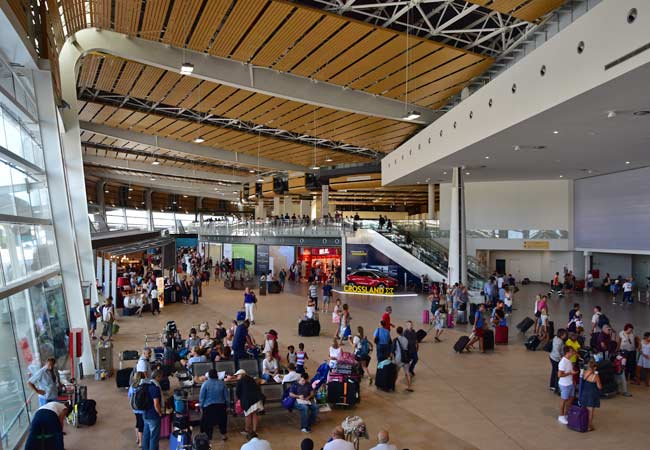
oh we were stuck in the airport!

Copenhagen was a bit expensive...

All we did was drink beer in Brussels...

Muncih was crazy
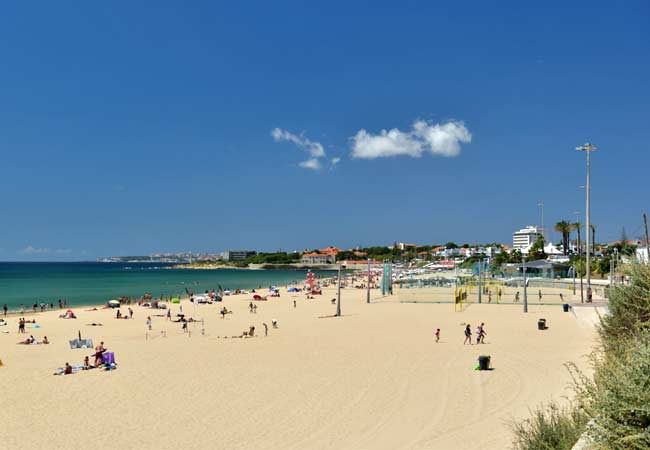
And we got so burnt!
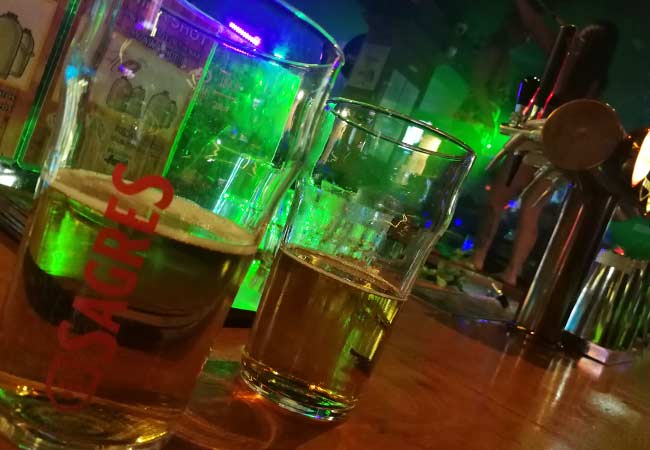
Remeber that night in Rome

oh we were stuck in the airport
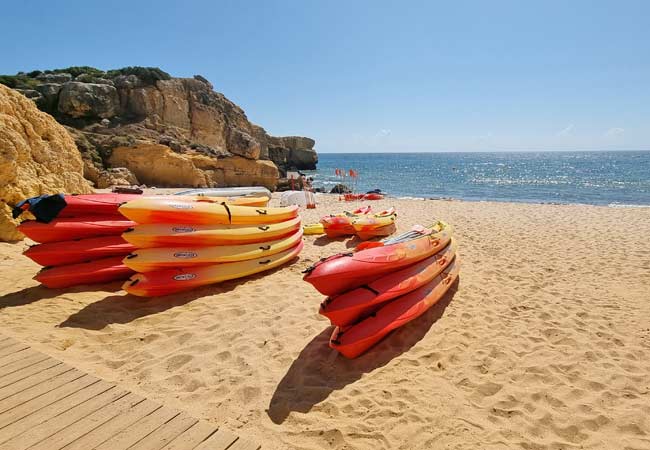
So much fun kayaking

Berlin and that group from Austria!

There was such a view from that church

And we got so burnt!

Munich was eventful, wasn't it!

Such a view from that cathedral in Florence
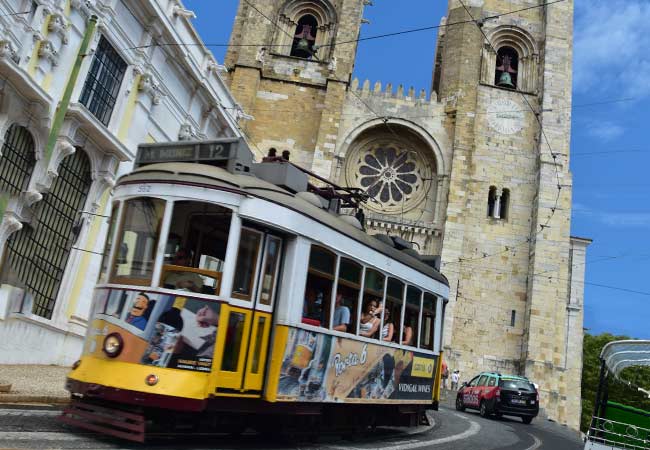
Lisbon was such so much fun

Last summer was so much fun .... x

Remeber that night in Rome

Lisbon was such so much fun

Such a view from that cathedral in Florence

Munich was eventful, wasn't it!

And we got so burnt!

Remeber that night in Rome

All we did was drink beer in Brussels...

Berlin and that group from Austria!

Can't wait to go back to Dubrovnik

Remember that boat ride in Prague

Copenhagen was a bit expensive...
